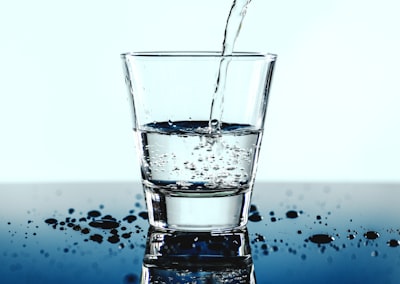The Importance Of Hydration
Dec 28, 2018
by chris brown
The Importance Of Hydration
In all aspects of life, you've likely been told the importance of drinking water. We all know we should be doing it. But are we doing enough of it?
We talk a lot about proper nutrition and its benefits for both fitness and overall health, but many of us forget about the vital function of H20. Our bodies rely on not only the proper foods to fuel it, but we literally depend on water to survive.
The old adage of drinking 8 eight-ounce glasses of water per day is a good benchmark to go off, but according to the Mayo Clinic , that's a "reasonable goal" — however, it's not a one-size-fits-all approach.
"Most healthy people can stay hydrated by drinking water and other fluids whenever they feel thirsty," the clinic says. "For some people, fewer than eight glasses a day might be enough. But other people might need more. "
Some of those people are athletes, including CrossFitters.
The medical authority says:
If you do any activity that makes you sweat, you need to drink extra water to cover the fluid loss. It's important to drink water before, during and after a workout. If exercise is intense and lasts more than an hour, a sports drink can replace minerals in your blood (electrolytes) lost through sweat.
Fluid intake may also need to be increased for things like hot weather, higher altitudes, sicknesses and pregnancy.
A common approach to determining a good amount of water intake on a given day is to consume at least half of your body-weight (number of pounds) in ounces. That said, a 200-pound man would need to drink a minimum of 100 ounces of water before exercise. To account for water lost via working out, Boxlife suggests drinking an additional 15-20 ounces of water about two hours before a WOD , and then another 10-16 ounces about a half hour before.
Also, remember to space out your water consumption throughout the day.
"If you drink too much plain water in one sitting, you may develop a rare condition called hyponatremia," Boxlife states. "This occurs when there is not enough sodium in the body, and usually comes about when athletes (particularly endurance athletes) drink too much water."
CrossFit Awaken suggests purchasing your water by the gallon to keep with you and to help remind you to keep drinking plenty, and consistently.
"It's not the easiest thing in the world because it is big and bulky but it will help you to always have water near and it will remind you to continue to drink enough throughout the day," CFA's Chris Brown stresses.
Also, if you're feeling hungry and it's not necessarily time for a meal, try drinking a glass of water first, as thirst is often confused with hunger.
And though it may seem like a simple topic to stay hydrated, there are some misconceptions out there. The CrossFit Journal covered the topic of water and spoke with a hydration expert. In this piece , they addressed some common myths that are important to keep in mind, including:
- Myth 1: Urine Color Is an Accurate Measure of Hydration
- Myth 2: Once You Feel Thirsty, You’re Already Dangerously Dehydrated
- Myth 3: You Need Sports Drinks to Replace Electrolytes
- Myth 4: Any Level of Dehydration Negatively Affects Performance
- Myth 5: You Can’t Drink too Much Water


